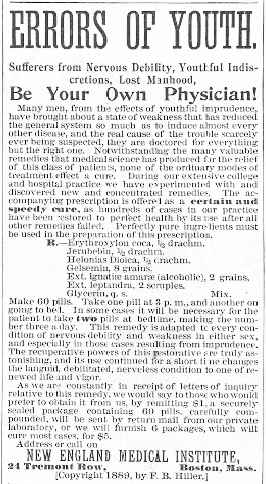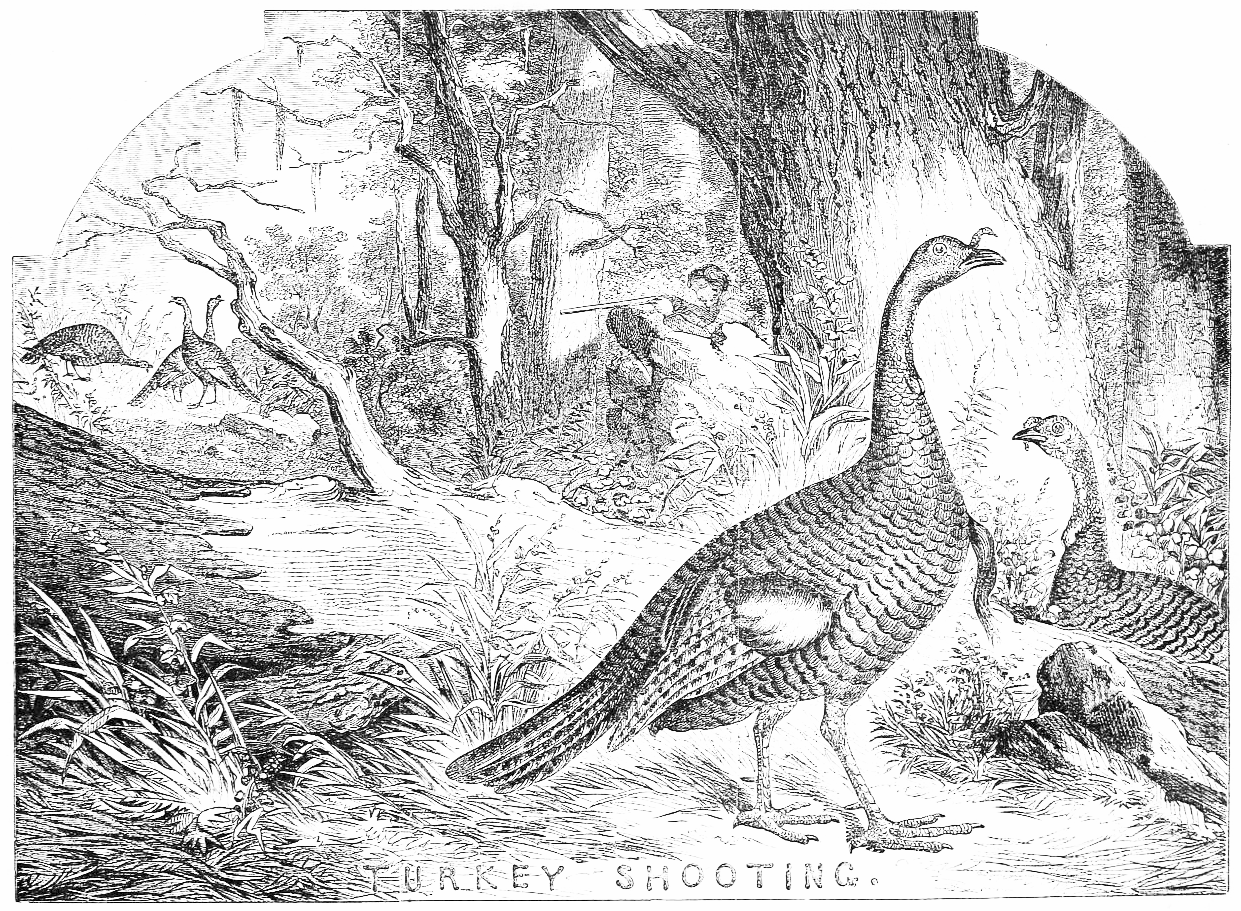
Turkey Shooting.

About the beginning of October, turkeys, young and old, move from their breeding districts towards t
November 20, 2017

alias:
CHECK FORGER
Welcome to this week's Link Dump!We have tea!A haunted historic cabin.A haunted historic inn.The life of a 15th century Duchess of Milan.The saga of the Los Angeles Breakfast Club.The legacy of Flannery O'Connor.The debate over "recovered memories." I know someone who once went under hypnosis, and "recovered" memories of things that I know for a fact never ever happened. The
More...
Strange Company - 3/28/2025
Included in yesterday’s trip to Fall River was a stop at Miss Lizzie’s Coffee shop and a visit to the cellar to see the scene of the tragic demise of the second Mrs. Lawdwick Borden and two of the three little children in 1848. I have been writing about this sad tale since 2010 and had made a previous trip to the cellar some years ago but was unable to get to the spot where the incident occured to get a clear photograph. The tale of Eliza Borden is a very sad, but not uncommon story of post partum depression with a heartrending end. You feel this as you stand in the dark space behind the chimney where Eliza ended her life with a straight razor after dropping 6 month old Holder and his 3 year old sister Eliza Ann into the cellar cistern. Over the years I have found other similar cases, often involving wells and cisterns, and drownings of children followed by suicides of the mothers. These photos show the chimney, cistern pipe, back wall, dirt and brick floor, original floorboards forming the cellar ceiling and what appears to be an original door. To be in the place where this happened is a sobering experience. My thanks to Joe Pereira for allowing us to see and record the place where this sad occurrence unfolded in 1848. R.I.P. Holder, Eliza and Eliza Ann Borden. Visit our Articles section above for more on this story. The coffee shop has won its suit to retain its name and has plans to expand into the shop next door and extend its menu in the near future.
More...
Lizzie Borden: Warps and Wefts - 2/12/2024
The 20th century skyline of Manhattan—dominated by gleaming, crisply defined skyscrapers like the Empire State Building and Chrysler Building—was a frequent subject for photographers of the 1930s and 1940s. “New York Skyline Evening Haze,” 1936 But few have the depth and texture of these muted, murky skyline images by Paul J. Woolf: one of the […]
More...
Ephemeral New York - 3/24/2025
Youth With Executioner by Nuremberg native Albrecht Dürer … although it’s dated to 1493, which was during a period of several years when Dürer worked abroad. November 13 [1617]. Burnt alive here a miller of Manberna, who however was lately … Continue reading
More...
Executed Today - 11/13/2020
National Police Gazette, June 1, 1889.On May 12, 1889, the janitor of the Clifton Boat Club on Staten Island found the body of a young woman floating in the water. Though badly decomposed, Dr. S.A. Robinson identified her as Mary Tobin, who had recently resigned from her job in his office. Mary Tobin’s life was clouded with mysteries and contradictions. She had come to Staten Island from
More...
Murder By Gaslight - 3/29/2025
Soapy Smith STAR NotebookPage 18 - Original copy1884Courtesy of Geri Murphy(Click image to enlarge)
oapy Smith in Denver.Operating the prize package soap sell racket in 1884.This is page 18, the continuation of page 17, and dated March 28 - April 12, 1884, the continuation of deciphering Soapy Smith's "star" notebook from the Geri Murphy's collection. A complete introduction to this notebook
More...
Soapy Smith's Soap Box - 3/11/2025
[Editor’s note: Guest writer, Peter Dickson, lives in West Sussex, England and has been working with microfilm copies of The Duncan Campbell Papers from the State Library of NSW, Sydney, Australia. The following are some of his analyses of what he has discovered from reading these papers. Dickson has contributed many transcriptions to the Jamaica […]
More...













